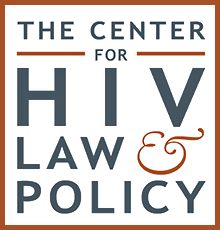Overview
Massachusetts does not have any HIV-specific criminal laws in place, however people living with HIV have been prosecuted under general laws.
Perceived ‘exposure’ to HIV has been prosecuted under several general criminal laws. In the case of Commonwealth v Smith, a man living with HIV was alleged to have bitten a corrections officer while shouting that he was HIV-positive and that he hoped he would kill the officer. The man was prosecuted for assault with intent to commit murder, which he ultimately pled guilty to, despite the fact that there is only a negligible risk of transmission from a bite. In other cases, the offence of assault with a dangerous weapon has been used to prosecute people with HIV, with the fluids of a person living with HIV being the ‘weapon’ in question.
People convicted of certain offences can be kept in confinement for medical treatment even after completing their sentence if their release would be considered a ‘danger to public health’. This law does not limit the isolation to a set period of time, rather stating that they should be confined until the ‘danger of contagion’ has passed or the doctor otherwise determines the isolation unnecessary. This vague provision has the potential to enable people living with HIV to be detained indefinitely following completion of their sentence, whether for perceived HIV ‘exposure’ or another matter, though we are not aware of any reports of this happening.
For a detailed analysis of HIV criminalisation in Massachusetts, as well as all other US states, see the Center for HIV Law and Policy report, HIV Criminalisation in the United States: a Sourcebook on State and Federal HIV Criminal Law and Practice.
Laws
Massachusetts Laws § 265.22b
Rape of a Child During Commission of Certain Offenses or by Use of Force; Penalties
Section 22B. Whoever has sexual intercourse or unnatural sexual intercourse with a child under 16, and compels such child to submit by force and against his will or compels such child to submit by threat of bodily injury and:
[…]
(f) the sexual intercourse or unnatural sexual intercourse was committed in a manner in which the victim could contract a sexually transmitted disease or infection of which the defendant knew or should have known he was a carrier, shall be punished by imprisonment in the state prison for life or for any term of years, but not less than 15 years. The sentence imposed on such person shall not be reduced to less than 15 years, or suspended, nor shall any person convicted under this section be eligible for probation, parole, work release or furlough or receive any deduction from his sentence for good conduct until he shall have served 15 years of such sentence. Prosecutions commenced under this section shall neither be continued without a finding nor placed on file.
Massachusetts Laws § 111.121
Treatment of Venereal Diseases or Pulmonary Tuberculosis in Public Charitable or Penal Institutions; Expenses
An inmate of a public charitable institution or a prisoner in a penal institution who is afflicted with a venereal disease, as defined under section six or pulmonary tuberculosis shall be forthwith placed under medical treatment, and if, in the opinion of the attending physician, it is necessary, he shall be isolated until danger of contagion is passed or the physician determines his isolation unnecessary. If at the expiration of a prisoner’s sentence he is afflicted with a venereal disease, as defined under section six or pulmonary tuberculosis in its contagious or infectious stages, or if, in the opinion of the attending physician of the institution or of such physician as the authorities thereof may consult, his release would be dangerous to public health, he shall be placed under medical treatment in the institution where he has been confined.
Massachusetts Laws
§ 265.15 Assault with intent to murder
Whoever assaults another with intent to commit murder, or to maim or disfigure his person in any way described in the preceding section, shall be punished by imprisonment in the state prison for not more than ten years or by a fine of not more than one thousand dollars and imprisonment in jail for not more than two and one half years.
§ 265.15a Assault and battery with dangerous weapon
(…)
(b) Whoever commits an assault and battery upon another by means of a dangerous weapon shall be punished by imprisonment in the state prison for not more than 10 years or in the house of correction for not more than 21/2 years, or by a fine of not more than $5,000, or by both such fine and imprisonment.
(c) Whoever:
(i) by means of a dangerous weapon, commits an assault and battery upon another and by such assault and battery causes serious bodily injury;
(…)
shall be punished by imprisonment in the state prison for not more than 15 years or in the house of correction for not more than 21/2 years, or by a fine of not more than $10,000, or by both such fine and imprisonment.
(d) For the purposes of this section, ”serious bodily injury” shall mean bodily injury which results in a permanent disfigurement, loss or impairment of a bodily function, limb or organ, or a substantial risk of death.
§ 265.15b Assault with dangerous weapon
(…)
(b) Whoever, by means of a dangerous weapon, commits an assault upon another shall be punished by imprisonment in the state prison for not more than five years or by a fine of not more than one thousand dollars or imprisonment in jail for not more than two and one-half years.
Further resources
Not all laws used to prosecute people living with HIV in this state are included on this page. For a comprehensive overview and analysis of HIV-related criminal and similar laws and policies, visit The Center for HIV Law and Policy
